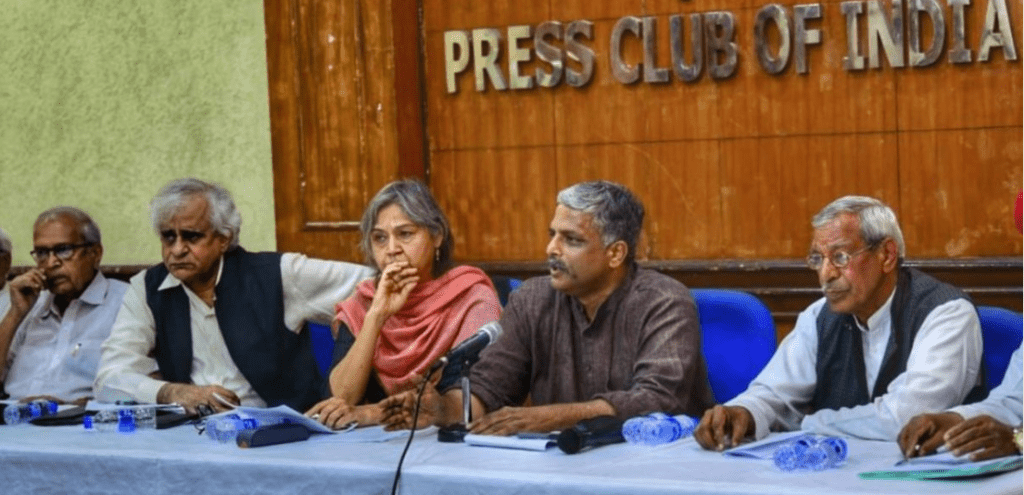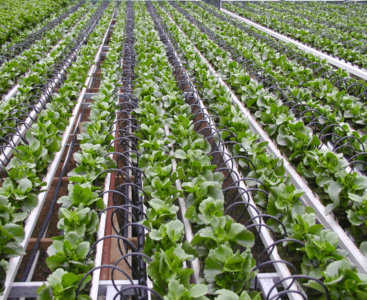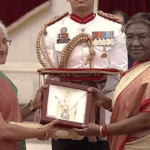The Kisan Mazdoor Commission (KMC) has emerged as a pivotal platform dedicated to addressing the systemic challenges faced by farmers and laborers in India’s agricultural sector. With the upcoming general elections, the KMC has released a preliminary agenda, urging political parties to incorporate its recommendations into their manifestos. This article explores the genesis of the KMC, its objectives, and the key recommendations outlined in its ‘Agenda for 2024.’
Genesis of Kisan Mazdoor Commission
The KMC traces its origins to extensive deliberations among experts, farmers, and labor unions under the banner of ‘Nation for Farmers.’ This coalition evolved into the KMC, aiming to integrate farmers and workers directly into agricultural policy discussions. Noteworthy figures such as Jagmohan Singh, Vijoo Krishnan, and P. Sainath play key roles within the commission.
Objectives of KMC
The KMC’s ‘Agenda for 2024’ encompasses a comprehensive study of various aspects including rising production costs, income augmentation, trade dynamics, rural credit mechanisms, and gender inclusivity in farming. One of its core objectives is to confront corporate dominance in the agricultural supply chain, which has led to increased production costs and decreased incomes for farmers.
Urge to Political Parties Ahead of Lok Sabha Election 2024
The KMC’s recent release of a preliminary agenda on March 19 urges political parties to incorporate its recommendations into their manifestos. This includes empowering farmers and laborers to collectively pool resources for value addition and advocating for grassroots-level collectives such as Kisan Mazdoor Cooperatives (KMCs).
The commission has proposed the reopening of cattle trade markets to address the issue of stray cattle and the establishment of a National Commission for Fisheries to safeguard the rights of small-scale fishing communities. Additionally, it has called for a reassessment of agreements between the ICAR and multinational corporations and advocated for enhanced budgetary allocations to states from the 15th Finance Commission.

Img Src:-theWire.in
Gender Equality and Other Concerns
The KMC has emphasized the need to recognize women as farmers and ensure their land rights and tenancy security. It has also opposed recent actions by the Haryana Police against protesting farmers, advocating for a complete loan waiver for farmers.
Conclusion
The Kisan Mazdoor Commission, through its ‘Agenda for 2024,’ aims to bring about significant reforms in India’s agricultural sector. As it collaborates with various stakeholders, including farmers and labor committees, the commission signifies a crucial step towards empowering the backbone of India’s economy – its farmers and laborers.
Click Here For More Information and Latest News Articles
FAQs (Frequently Asked Questions)
- What is the Kisan Mazdoor Commission?
- The Kisan Mazdoor Commission (KMC) is a platform dedicated to addressing the challenges faced by farmers and laborers in India’s agricultural sector.
- What is the ‘Agenda for 2024’ outlined by the KMC?
- The ‘Agenda for 2024’ includes a study of various aspects of agriculture, such as rising production costs, income augmentation, trade dynamics, and gender inclusivity in farming.
- What recommendations has the KMC made to political parties ahead of the 2024 elections?
- The KMC has urged political parties to incorporate its recommendations into their manifestos, including empowering farmers and laborers to collectively pool resources for value addition.
- What are some of the key proposals put forth by the KMC?
- The KMC has proposed the establishment of grassroots-level collectives such as Kisan Mazdoor Cooperatives (KMCs) and advocated for the reopening of cattle trade markets.
- How does the KMC address gender equality in farming?
- The KMC emphasizes recognizing women as farmers and ensuring their land rights and tenancy security.










